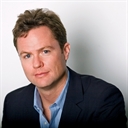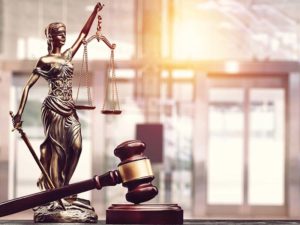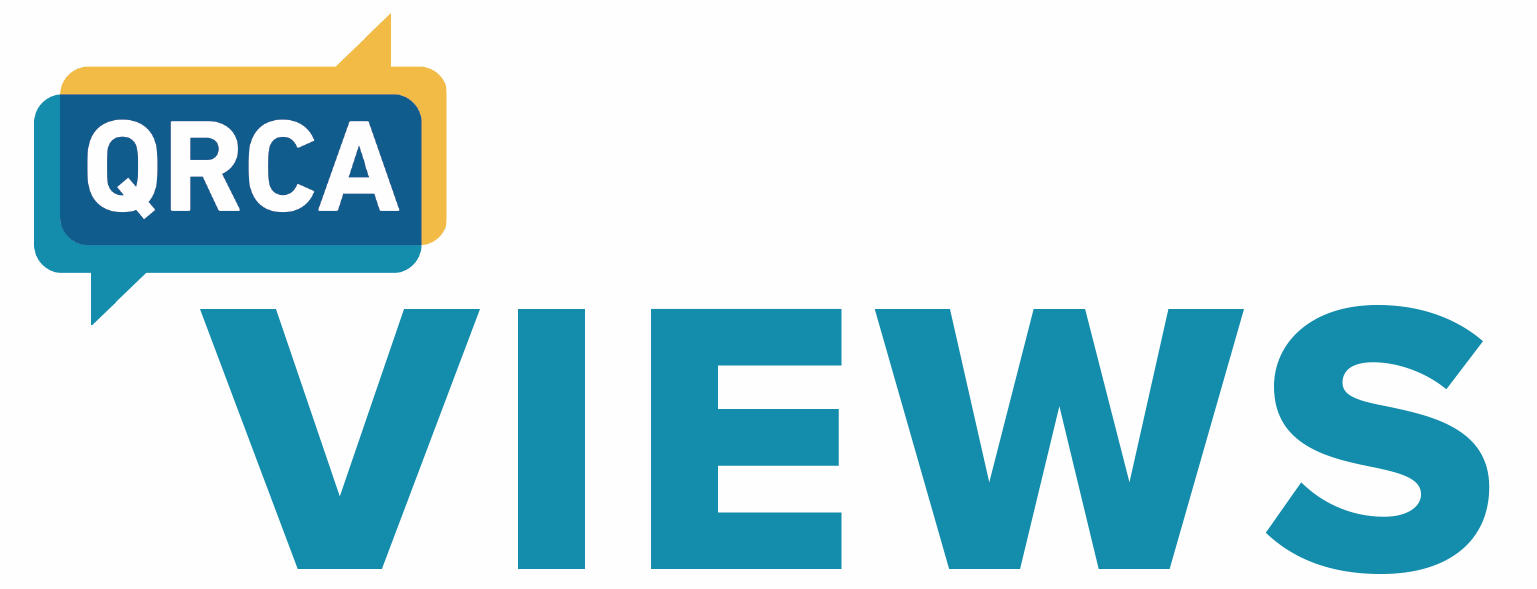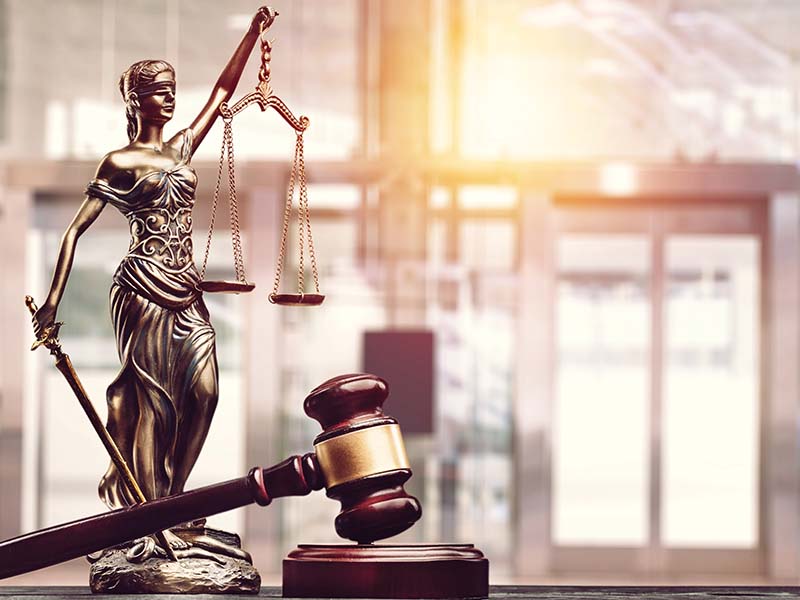
By Tom Neveril, Storybrand Consulting, Los Angeles, California tom@storybrandconsulting.com
In September 2020, the fraud case against Theranos founder Elizabeth Holmes took its first dramatic turn during jury selection. As one might expect, her attorneys asked potential jurors about familiarity with news coverage of Ms. Holmes, looking for indicators of bias. But they also asked about whether the potential jurors had any personal experience with domestic abuse.
Court filings revealed that Ms. Holmes’s defense strategy was built upon the narrative of “a decade-long campaign of psychological abuse” by her former business and romantic partner Sunny Balwani. For example, he allegedly controlled what she ate, when she slept, and how she dressed.
After the jury was selected, Geri Fischman, PhD, a senior trial consultant at Focus Litigation Consulting in Miami, was interviewed by The Wall Street Journal to comment on the case. Dr. Fischman, who wasn’t part of the defendant’s team, explained how Ms. Holmes’s previous style could undermine the victim narrative. “She’s known for her signature black turtleneck, and that was her uniform, as this entrepreneurial tech genius in her twenties, and that uniform kind of comes off as a bit alpha and domineering, which does not comport with who she is presenting herself as in terms of her defense.”
As I read more about this high-profile case, I was once again reminded of the fascinating art and science behind litigation consulting.
In this article, I’ll highlight three key areas to consider when working within this field:
- How mainstream qualitative market research skills can be applied
- How changes accelerated by the COVID-19 pandemic may present opportunities
- Which areas of expertise and soft skills typically contribute to lasting success
Some Background on Litigation Consulting
First, let’s start with some background on the basics of litigation consulting. The buyers of these services are attorneys/law firms, and on occasion, government attorneys (defense and prosecutors). The research suppliers are often referred to as “trial consultants or jury consultants.” However, “litigation consultants” may be more accurate because many in this field consult on aspects outside of the actual courtroom, and many cases settle before trial.
These research firms may consist of small- to medium-sized firms with consultants who come from a wide range of backgrounds, including qualitative researchers, social scientists, psychologists, sociologists, communication experts, economists, and, of course, law experts.
Ultimately, litigation consultants are hired to improve a party’s chances of winning civil and criminal cases, especially when substantial dollar awards or severe criminal penalties are at stake. Consultants help improve chances of favorable decisions by assisting attorneys with trial strategy, case presentation, preparation of witnesses, improvement of arguments and exhibits, and understanding the challenges with the case. Key tasks within this field include community attitude surveys, focus groups, mock trials, and assistance with trial presentations. There is also the area of jury selection, which is a highly sophisticated skill that is supported by specialists who work in this phase of litigation.
The Fundamentals: Focus Groups and Mock Trials 
Here are the basics of how litigation research projects are conducted.
Similar to qualitative projects in other industries, the first step is developing research objectives. Judy Rothschild, PhD, a Davis, California-based trial/jury consultant interviewed for this article, explained, “One of the key purposes of mock juror research is not to win or lose in the research setting, be it a focus group or mock trial, but to learn about ‘patterns of reasoning’ of how the actual jurors are likely to respond to the case. While mock juror research is always an abbreviation of what will be presented at trial, it provides a valuable opportunity to gain empirical insights about facts and issues likely to resonate with actual jurors. These insights can enable skilled attorneys to shape their case presentations, trial, and jury selection strategies to enhance their chances of prevailing at the actual trial or in settlement negotiations.”
With research objectives in mind, the next task is recruiting. It’s critical that mock jurors are recruited from the same or representative pool of potential jurors for the case. This pool of resident citizens may be diverse geographically and demographically. For example, residents of the Northern District of California, including fifteen counties, are subject to jury service in one of the court’s four locations: San Francisco, Oakland, San Jose, or Eureka.
From that point, methodology choices are primarily driven by the level of development in the attorneys’ arguments.
When attorneys are early in the process of developing their arguments—“kicking the tires” of a case—they’re more likely to pursue exploratory research. These projects often resemble typical focus groups.
In focus group studies, multiple hypothetical themes developed by attorneys are presented to a group of roughly ten to twelve mock jurors. There might be two or three groups conducted over one day, or perhaps multiple days. In any case, these are a bit easier to manage because respondents only attend a single session, typically two to four hours long.
Mock trials, on the other hand, are typically used for evaluating how jurors process the arguments of a highly developed case presentation and the evaluation of key evidence. They usually require mock jurors to spend more time on a single day, or over a few days. While they’re much less detailed than an actual trial, attorneys often make their presentations with graphics, charts, live or recorded witness testimony, and other polished media.
In mock trials, a common methodology approach is to recruit a large group of mock jurors (typically equal to three focus groups) and attempt to replicate the experience of jury service. Different attorneys (from the same or multiple firms on the same side of the case) will present opening arguments for the plaintiff and the defense, facts of the case, and sometimes closing arguments. Then the mock jurors are given jury instructions based on what a judge typically would provide. The large group is then divided into multiple panels of ten to twelve members. Each panel is observed by researchers and attorneys as they deliberate in separate focus group rooms. Verdicts are typically rendered by the mock jurors.
Afterward, researchers will moderate sessions with mock jurors to explore how evidence was processed and considered during deliberations. During these sessions, attorneys may collaborate with researchers to help support detailed questioning.
Tamara Kenworthy, a veteran qualitative research consultant and principle of On Point Strategies in Iowa, who has conducted litigation research, has worked with attorneys to glean insights for a range of elements in a case. See below, Why Attorneys Conduct Legal Research. “What makes this type of research project so interesting are the many elements of a case that are tested in the research. Observing the mock jurors in deliberations and then moderating the focus group is intriguing and unlike any other type of industry research project I’ve done,” says Kenworthy.
The Pandemic’s Impact: Accelerating Adoption of Virtual Communication
As with every other industry, the COVID-19 pandemic delivered a shockwave through the legal field and the court systems.
Leslie Ellis, PhD, a Washington, D.C.-based litigation consultant explained, “Just like a lot of other businesses, we went from in-person, face-to-face, in focus group facilities with clients behind the mirrored glass, to online virtual focus groups. We started doing everything over Zoom, WebEx, pick your platform. The pandemic jumpstarted the use of technology in the legal field, in a way that hasn’t happened before. Even though attorneys like doing depositions, mock trials, and witness preparation sessions in person, logistics, costs, judges’ preferences, and arbitrators’ preferences are reasons these types of proceedings and events will remain online.”
Tom Joensen, a trial attorney with Faegre Drinker Biddle & Reath, LLP, based in Des Moines, Iowa, echoed this point. “We’ve moved five to ten years faster than we would have in terms of remote communication use and technology, solely because of the pandemic. I don’t even do depositions [in person] right now. I don’t fly to a specific city anymore. I just do them remotely, and that wouldn’t have happened until 2030. But now, it’s done in 2021.”
But No One Is Permanently Replacing In-Person Research
While some areas of legal work will remain virtual, the preference for in-person research remains. This is driven by the fact that virtual methodologies widen the gulf between mock exercises and actual jury service experiences.
Both consultants and attorneys agree that in-person focus groups and mock jury exercises can only approximate a trial experience. They can’t replicate one. For example, in live trials, jurors are dealing with real stakes: real emotions, real dollar figures, and/or real criminal penalties. Jurors also have time to develop a deeper sense of the evidence, the law, and attorneys’ personalities, all of which may influence their perceptions. Mr. Joensen explained, “There are the intangibles of trial in which attorneys do build the trust of the jurors throughout the trial. I think for a defense attorney, it takes a little time.”
Judges also play a large role in trials that cannot be replicated. They lend gravitas to jury instructions, rule on permissibility of evidence, and manage the proceedings in unique ways.
The Key Challenge Today: Combining Virtual and In-Person Methods with Credible Results
Ultimately, attorneys and litigation consultants will continue using a combination of virtual and in-person research methodologies in advance of in-person trials.
This raises an important question: if consultants use both methods, will the findings be consistent across methods?
To simulate the real jury experience, consultants should strive to create a consistent experience across methods.
- Expertise in recruiting individuals for virtual studies, who won’t misrepresent the actual juror pool
The potential for differences between mock jurors and the actual jury pool has always existed. Mr. Joensen explained, “With mock juries, we always take into account the fact that this is volunteer. Who has the time to actually participate in one of these on a Monday, Tuesday, Wednesday, Thursday, or during the workday? So, you might get a particular group of people who don’t work or are unemployed at the time. Or, they’re using vacation time to do something interesting. So, that might not represent the jurors who come in through the requirement of serving jury duty; people who are missing work because it’s a civic duty.”
With virtual mock trials and focus groups, these differences may be compounded. For example, there are many people who might be able to attend a virtual session but are unable to attend jury service due to health concerns, travel costs, or childcare responsibilities. On the other hand, there are people who have no health concerns about indoor gatherings, but resist taking time off from work, except for actual jury service. These folks might be hesitant to participate in market research, especially if it requires several hours or days. However, it is critical that they are also represented in a virtual study.
- Expertise in virtual moderating, with highly complex topics
As Dr. Ellis explains, “One aspect of the delta between online research and in-person proceedings is, how is the evidence perceived differently? How do our brains take that information in? So, people are starting to look at the cognitive load that happens when we’re taking in all this information virtually, stuck in a chair, staring at our screen. Zoom fatigue is real. So, how do our brains process the evidence that we’re taking in via a computer monitor versus the live theater that is a trial?”
Similarly, moderators of virtual mock trials need to be able to read mock juror feedback subtext, body language, even microexpressions on individual case points, and then understand how they’re processed together. The key issue, as Dr. Ellis points out, is magnitude. “The more individuals that you have in your research exercise, the more varied reactions you’ll have to the evidence. Then the more participants you have in the deliberating group, the more processes you have with negotiating and debating, and what becomes those inflection points where someone changes their mind. So, you need to have a comfort level with the number of people you’ve recruited so that you can uncover the problem areas and fully vet your strongest areas.”
- Expertise bringing people to life through video or virtual platforms
Given the complexity and nuance discussed above, litigation consultants should understand how virtual tools (like Zoom and Skype) can influence meaning and persuasion compared to in-person interactions.
For example, when conducting research, it’s important that moderators, attorneys, and witnesses communicate by looking “into the eyes” of each other, as they normally would in court. Camera positioning and visual focus are very important, as our eyes transmit a wealth of nonverbal communication. Attorneys or witnesses who don’t appear to be looking at jurors may seem aloof or unengaged.
Recorded witness testimony is also critically important. The production quality must replicate how a witness may testify in court. Videos must be free of distracting details or backgrounds. A litigation consultant needs to make sure video recordings convey the witnesses’ emotional states at particular points in the testimony.
Other Helpful Areas of Expertise
In addition to the above skills, academic and work experience in certain areas can absolutely help qualitative researchers land work in litigation consulting.
One qualification that will help a researcher land work is a working knowledge of the U.S. legal system. Lawyers like to work with consultants who have at least some familiarity with legal language and procedural law. Not surprisingly, some litigation consultants have postgraduate degrees or continuing education in the legal field. Basic knowledge in certain types of cases—for example, white collar crime, personal injury, employment law, and intellectual property—may also be helpful. Lastly, familiarity with legal procedure across federal and state jurisdictions is certainly valuable for researchers who may conduct litigation consulting across the United States.
Another qualification is far more common among mainstream qualitative researchers. Mr. Joensen summarized it when explaining what he looks for in a partner. “I think consultants have to be well-versed on issues of psychology and the studies of people in particular regions across the United States. That goes beyond knowing whether people tend to be conservative or liberal. I think it goes to other values, for example, how much they think is a lot of money, and where they stand on a variety of social issues.”
Soft Skills That Matter
Like most other careers, certain personality types tend to find the work more engaging. Here are some of the key soft skills that truly matter:
- Calm under pressure.Attorneys tend to be more stressed when their cases are going to trial. The stakes are much higher, and the lawyers can be far more demanding.
- Tolerant.Trials and jury selections often touch upon controversial topics regarding responsibility, blame, punishment, and fairness. Successful practitioners in this field must be open and empathetic to both sides, on the key issues of a case, to anticipate opposing arguments and bolster counterarguments.
- Storytelling.While evidence is always the most decisive element, the ability to find a central theme for a case is critically important to persuasion. Dr. Ellis explained, “Being an effective advocate in trial always has been, and always will be, about telling a good story. By story, I don’t mean fiction. I mean, what is the narrative behind the 1,500 pieces of information that you have in your case, that you need the jury to know? What’s the connective tissue that tells them the who, what, when, where, why, and why they should care?”
- Flexibility.Consultants may be at the mercy of clients’ and courts’ schedules. As Dr. Ellis points out, “You have to be really comfortable going with the flow. Judges move things. Attorneys reschedule things.”
If these areas of expertise and temperament feel like a fit for you, you should consider exploring litigation consulting. Today, litigation consultants are recognized by law firms as often playing absolutely critical roles in preparing for cases. The compensation for firms is competitive with any other business category.
But, perhaps most importantly, the potential to discover deeply meaningful insights is always there. Kenworthy summed up her experience in litigation consulting this way: “Conducting mock jury trials have been some of the most interesting and rewarding research I’ve conducted. The fact that you’re assisting attorneys and their clients prepare for a case that could be life-changing or involve millions of dollars in damages is fascinating and serious work.”
Why Attorneys Conduct Legal Research
Tamara Kenworthy, On Point Strategies, who has conducted litigation consulting, outlines various elements that an attorney may seek to understand when conducting legal research.
- Gain a reality check on the facts of the case
- Identify, affirm, or disaffirm strategies and themes for the case
- Understand what matters to “jurors”
- Determine what facts and standards should be emphasized
- Identify factual misperceptions of “jurors”
- Test visuals, photos, charts
- Identify surprises, land mines
- Test analogies and story lines
- Produce new light on facts
- Identify key witnesses and testimony
- Assess credibility of expert witnesses
- Assess the strengths and weaknesses of liability and damages
- Practice the case, and opening and closing arguments
- Probe perceptions of current societal issues related to the case
- Identify questions for jury selection
- Assist in developing juror profiles

